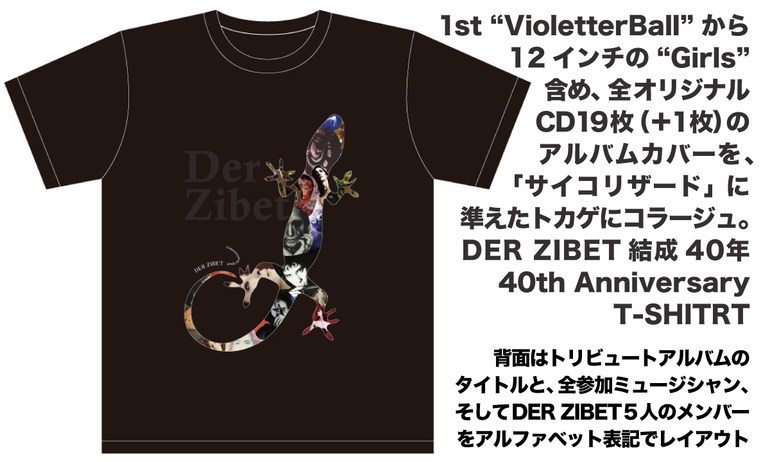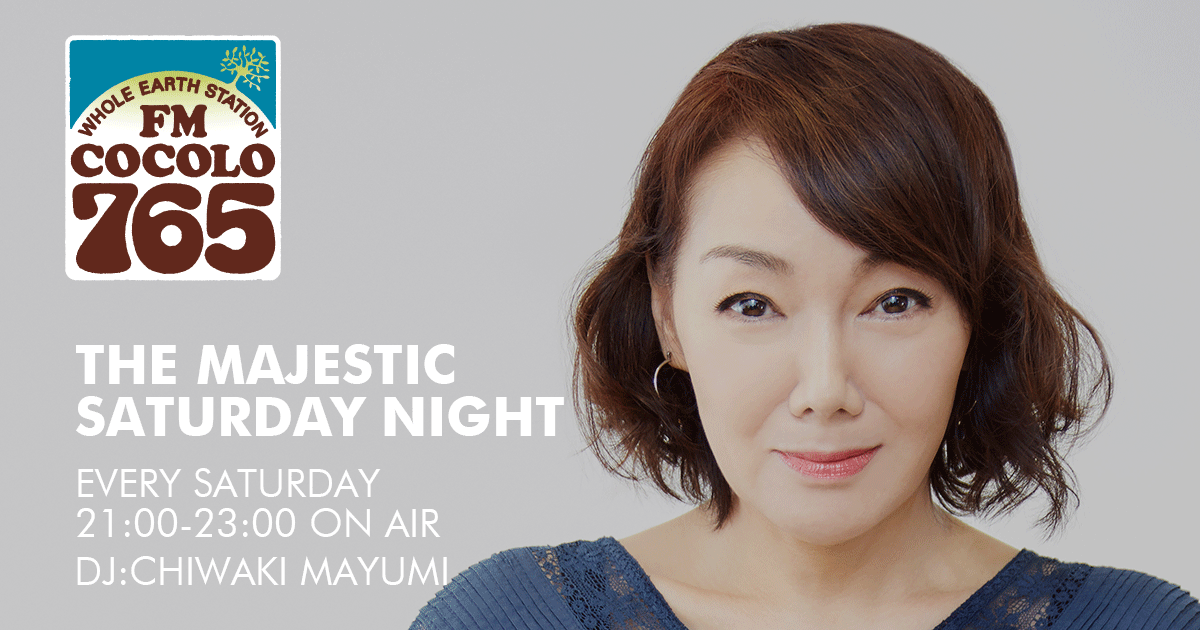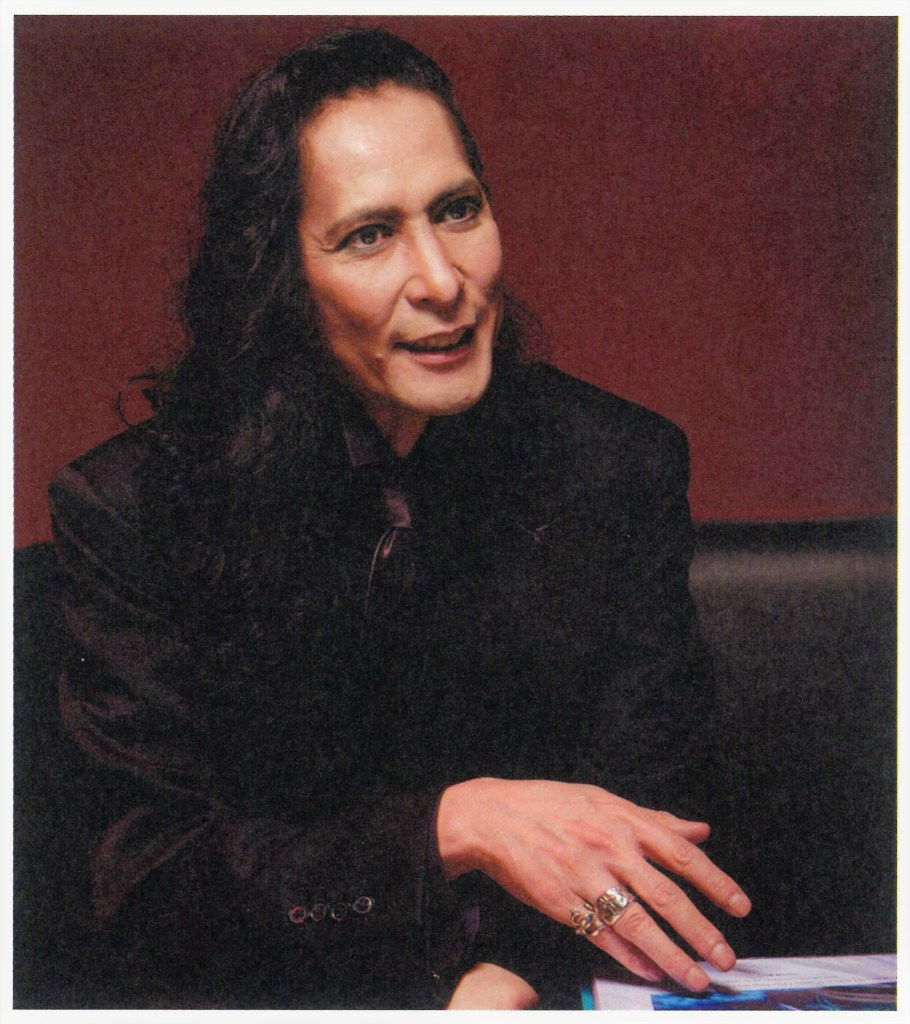―― Is there some basis behind the idea to form such a band?
T: As I said before, it’s the desire to leave something behind. Also, Joy Division’s a big part of it, right? I absolutely loved their 1978 release, Unknown Pleasures back when it first went on sale, but personally, I somehow feel that what we now call post-punk was still in its adolescence at that point in time, so I enjoyed it without truly understanding what it was. No, rather, I didn’t even know what I didn’t know. I only understood it from a technical perspective. Time went by before I finally realised, “Ah, so that’s what it’s about.”
In the end, it took me about 30 years [to get to that point]. 30 years is the equivalent of one cycle. In my case, it’s coming around for the second time. In my youth, I had my first adolescence, then I turned 30 and that was when I experienced another adolescence since becoming an adult, and now, another 30 years have passed and I’m once again gaining the ability to look at it all objectively.
Back then, I couldn’t explain what it was to others and more than that, I’ve come to understand that I overlooked the most important parts of it. Don’t you think this happens a lot? People who realise this probably get to live happy lives. Of course, even if you don’t realise it, it’s alright. Because it’s that person’s life to live. But it’s fun to find out.
―― So Joy Division is what started it.
T: That’s right. I realised it after discovering them once again. One day, I took their CD out of my cabinet for no particular reason to listen to them and found myself astounded. Listening to them now, their playing sounds exceptionally crude from a technical standpoint but that wasn’t what got me.
It was the question of why they decided to make something like this at such a time. And they weren’t the only ones, this was happening on a global scale back then. Something was changing and we could move towards it. People who saw things as they were held that belief. But I don’t have any proof of that. Which is what makes it cool.
That’s what we’re lacking the most these days, right? If you’re asking me whether people can be moved by blind faith or unquestioning conviction, I think they no longer can be. That’s the reason why things are no longer interesting.
The beginning of the 20th century, the 1910s were interesting. That was the age of German Expressionism. People came to think that it’s beautiful to destroy whatever came before. But there’s no proof at all that it’s truly the case. But it got to a point where they decided to destroy what they’ve created since it’s right in front of them. Then they questioned how they should destroy things. Which led to the pursuit of the beauty of destruction.
When punk came to an end, a mountain of things that had been broken was left before us and we found ourselves wondering how we were supposed to rebuild it all. We stood upon a mountain of rubble. We had Surrealism and Dadaism as our foundations. So, how do we rebuild it?
There is an appeal in that. How we chose to build differed from band to band. Among them, it was YMO who brought in technology.
Where do we go after Dadaism? It required a lot of energy for us to build the roads into the future too.
It couldn’t have been done unless you were driven. If you weren’t standing at the precipice, you wouldn’t have the energy for it. You wouldn’t even have enough to tell yourself, “I’m going to do my best.” Flailing and struggling in the sweeping trends, you’ll push to your very limits and there, you start to wonder, is there something I can do…… That is the point of time when a mysterious energy rises up.
But you must first tear things down. Because the lovely thing about humans is how they won’t understand unless they get to see first-hand the state of destruction.
―― Does this mean that Tsuchiya-san doesn’t align with Dadaism?
T: I do, after destruction. But that’s contemporary history or contemporary art that’s yet to be established. We haven’t arrived at its conclusion yet.
Joy Division and Factory Records were born out of Manchester, where the Industrial Revolution occurred. Therein lies a big hint. And as to what comes next, think about it yourself. It’s most definitely no coincidence.
What happened in Germany also happened in due course of history.
―― I see. I’m starting to understand why you named the band KA.F.KA.
T: It’s a courtesy, isn’t it? It’s a flow with proper etiquette. What’s important isn’t that the style of expression is new. If you have Shakespeare in your foundation, what you say will for some reason come across as beautiful even if you’re saying something harsh in your words. There’s not much point in being straight-up aggressive, neither is it attractive. Kafka wrote, “Our salvation is death, but not this one.”⁶ It’s brilliant, isn’t it? What does “this” refer to?
―― Right (lol).
T: Because a universe exists within each one of us. And in the end, that’s what it comes down to.
Our salvation is death. But what “this” refers to differs. That’s why we’re alive.
Kafka is just brilliant.
―― Like the eternally unobtainable in The Castle. But that’s why it’s good, right?
T: That’s right. Ultimately, where is the destination? You might have already gone past it.
There are those who say that the terminus for civilised society was 50 or 60 years ago. When we achieved a good balance. But after that, we’ve just been carrying out wasteful activities. There are also those who say that it all ended after the atomic bomb was created. That we’re just making things we don’t need.
―― Where does music stand in this?
T: This is the reason why music is important. Because it has to be made with care. To use it for the sole purpose of making money out of it is blasphemy. That’s not what music is.
―― I’d like to ask you about understanding people. For example, Miyazawa Kenji for years polished the story of Night on the Galactic Railroad⁷ while rewriting it for years, and in the end, he passed away without it ever being released to the world so what we’re now reading is the incomplete manuscript he held onto the whole time. Naturally, it was never read by anyone before his death. Not only that story, but all of Miyazawa Kenji’s works and his genius wasn’t understood in his lifetime.
T: This is because, the greater the excellence of a work, the longer it will take to understand it. But I think Miyazawa Kenji was very happy when he wrote Night on the Galactic Railroad. Because he created such a work of art. However, the level of those around him was too low for them to understand him sufficiently. And that is the misfortune of those who were not Miyazawa Kenji.
Van Gogh was put in the same situation. His wonderful works of art weren’t understood when he was alive. But I believe he spent an immense amount of energy painting those works, and he must’ve been absolutely thrilled with them. He must have been at the height of joy when he completed his paintings. Be it Miyazawa Kenji or Van Gogh, they were only understood by a few people like their siblings in their lives.
But now, Van Gogh’s paintings go for billions of yen. Something is fundamentally wrong. And that is the sad reality of our present era. You’re celebrated if you sell so many copies [of music] that it becomes a trending song, or if you generate lots of sales. But there’s probably nothing we can do about it because it’s a system that’s created in line with the society we live in.
―― KA.F.KA’s an amazing band. When the time came, Tsuchiya-san made your move and ISSAY-san joined in to create such great music.
T: It might be amazing to people like us, but I’d suppose society would consider this as no big deal. But we’re Miyazawa Kenji in this case, so that’s fine anyway (lol).
―― I see (lol).
T: I don’t expect what we’re making to be that easily understandable. Because even for me, I took 30 years to understand Joy Division.
―― ISSAY-san likes Joy Division too, right?
T: There aren’t many who can listen and feel Joy Division above a certain level. In ISSAY-kun’s case, I believe The Doors came existed before [Joy Division]. He has a good sense of etiquette.
I went to see the Dolly project that ISSAY-kun is working on and there, I watched him perform Kurt Weill’s Alabama Song from Bertolt Brecht’s play, The Threepenny Opera. I have never seen a performance that did Kurt Weill’s song justice. The version he performed was The Doors’. And that he performed it quietly in a blue room was great. [He made it] a place where revered art is born.
Now, The Threepenny Opera is recognised for its outstanding artistry, but when it first premiered, it was thought to be a very strange thing. Probably because it looked like a miscreation in theatre.
Joy Division’s Ian Curtis admired David Bowie and was said to have become the kind of singer that he was. And as to why David Bowie was thought to be attractive, it’s because The Doors existed. Like Hayakawa Yoshio’s album, To Think Being Cool Is This Uncool (かっこいいことはなんてかっこ悪いんだろう / Kakkoii Koto wa Nante Kakko Waruindarou), that’s exactly what The Doors have achieved.
As a band, The Doors existed in the era when all the different facets of rock music were being established so in other words, they were thoroughly worn out. As a rock band, they gave off such a fatigued feeling, it really was Hayakawa Yoshio’s To Think Being Cool Is This Uncool. But that’s a good thing.
This To Think Being Cool Is This Uncool also applies to Joy Division. If we show a DVD of their concert footage to young ladies who don’t understand rock music, I think 100 out of 100 of them will say that Ian Curtis is gross and that will be the end of it (lol). But that’s a natural reaction. How could they understand? It’s not something that is easily understood.
Both The Doors and Joy Division truly gave their all in what they did. But it was crude. They were all out crude. But they had the courage to continue fighting in that state, and that’s what rock music is to me. It’s not something that’s smart or achieved by fixing the sounds with a computer.
It doesn’t matter to me if people call [us] gross and leave it at that. I’m not even that interested in getting people to understand us. As to why, it’s simply because we’re all different.
I’m categorised as part of the Beatles generation but this is no joke. When I was in middle school, there were only one or two people talking about the Beatles in school. And yet, now, those who were kids when the band came to Japan to perform are calling themselves the Beatles generation, and those who get called that think they are in this group too.
―― Was Tsuchiya-san listening to the Beatles in middle school?
T: I lived in the suburbs, but I was lucky in the sense that my older sister was exchanging letters with an American for her English language studies and her pen pal sent us Meet The Beatles!. That’s why I started listening to them very early on. Their harmonies were the very first thing that struck me. And that was when my musical journey began.
―― Where did ISSAY-san’s musical journey begin?
I: For me, I was rowdy as rowdy could be when I was young, so there was no time for music. But I was introduced to David Bowie and T. Rex and Sex Pistols, and that was when I started to listen actively. It felt like music said “Yes” to me.
T: Where from did you get this present disposition of yours? These exceptionally gentlemanly aspects and the like.
I: Makes you wonder, doesn’t it?
T: Maybe family lineage. Were your ancestors perchance samurai?
I: Yes, I do have samurai ancestry.
T: They must’ve been rowdy yet classy people as well (lol). I was born in Fuji-shi, and he, in Numazu. We’re both from Shizuoka.
I: When I was a teenager, I was so rowdy that I wasn’t allowed to stay in that city (lol).
―― Well then, I wish you all the best in your future endeavours (lol).
KA.F.KA will be performing!
WORLD HAPPINESS 2015
23 August 2015 (Sun)
Doors open 11:00 / Show starts 12:30 (Performance scheduled to end 20:00)
Yumenoshima Athletic Stadium, Tokyo
info: http://www.world-happiness.com/
_______________________
《Fantome † Noir》
KA.F.KA
MBRC-9901
Mazzy Bunny Records
2000 yen (excl. tax)
- Jack The Midnight
- The Prisoner
- 夜明け前 ~Before the Dawn~ [Yoake Mae ~Before the Dawn~]
- Labiera Beladen
- Silent Party
- Coyote
Notes:
¹ Luna Sea’s vocalist.
² Kaneko Mari is a singer whose career began in the 1970s and took off with Smoky Medicine, the band she formed with Char. Her two sons are KenKen and Kaneko Nobuaki of RIZE.
³ Ueno Kouji was the bassist of THEE MICHELLE GUN ELEPHANT. He’s currently in the band the HIATUS.
⁴ 暗闇の怪人 (kurayami no kaijin) is the actual phrase used, rather different from the direct translation of Fantome Noir, i.e. black ghost. The reason why I went with “phantom” for 怪人 is actually because Phantom of the Opera in Japanese also uses 怪人 in its title (オペラ座の怪人 / Opera-za no Kaijin).
⁵ This might not be the most accurate translation of “それを生業とする” but I think it most closely conveys what Tsuchiya is talking about here. A more literal translation of this phrase is, “This is what I do for a living.”
⁶ I think that’s the quote he’s referring to. If it’s wrong, please let me know.
The line in Japanese reads: 死は確かに救いだ。ただ君が考えているそれとは違う。
⁷ 銀河鉄道の夜 (Ginga Tetsudō no Yoru), sometimes translated as Milky Way Railroad, Night Train to the Stars or Fantasy Railroad in the Stars, is a classic Japanese fantasy novel by Miyazawa Kenji written around 1927.
Translation: Yoshiyuki
Pics: Yoshiyuki
































































































